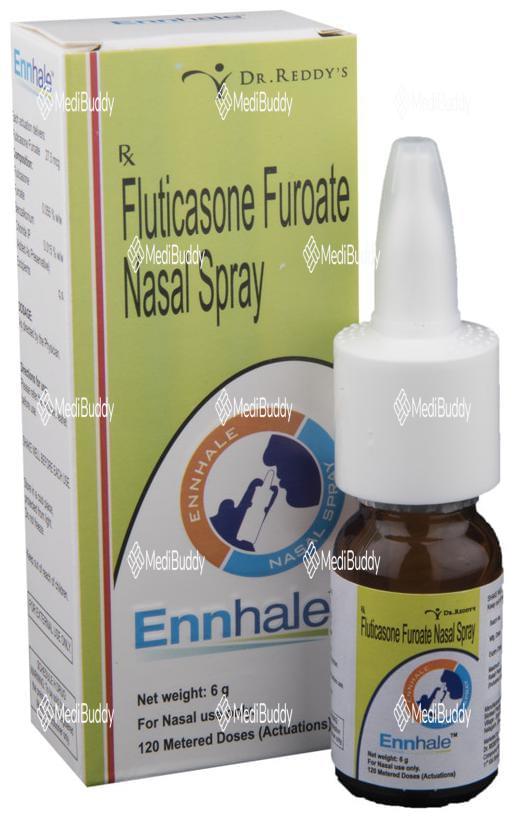Ennhale Nasal Spray
By Ennhale
Rx
120mdi Nasal Spray in a Bottle

Composition
Fluticasone Furoate(0.055% w/v)

Manufacturer - Dr Reddy's Laboratories Ltd
Dr. Reddy's Laboratories Ltd., 8-2-337, Road No. 3, Banjara Hills, Hyderabad, Telangana 500034, INDIA

Expires on or after
October, 2026

liver
For safe use of Ennhale Nasal Spray in relation to liver issues, it is important to note that no interactions have been found or established. This means that there is no known specific cautionary advice regarding the use of this nasal spray in relation to liver health. It is always recommended to consult with your doctor for proper guidance before using Ennhale Nasal Spray to ensure that it is suitable for your individual health needs.

kidney
No interaction or issues related to the kidneys have been found or established with Ennhale Nasal Spray.

alcohol
No interaction has been found between Ennhale Nasal Spray and alcohol. It is advisable to consult your doctor regarding alcohol consumption while using the nasal spray. During pregnancy, caution is advised.

driving
When it comes to driving while using Ennhale Nasal Spray, no interactions or effects have been found or established. It is safe to drive without any known issues associated with the use of this nasal spray.

pregnancy
Ennhale Nasal Spray may not be safe to use during pregnancy. Animal studies have shown potential harmful effects on the unborn baby. Your doctor will assess the risks and benefits before prescribing. Consult your doctor regarding its use.

breastfeeding
Ennhale Nasal Spray is deemed safe during breastfeeding with minimal risks to the baby. It should be used by nursing mothers only if the potential benefits outweigh any potential risks.
| Habit Forming | No |
| Chemical Class | Glucocorticoids |
| Therapeutic Class | RESPIRATORY |
| Action Class | Glucocorticoids |
₹437.75
Inclusive of all taxes
Content verified by

Dr. Mansi Chaudhari
MBBS - General Medicine
Last update on 11-Feb-2025










